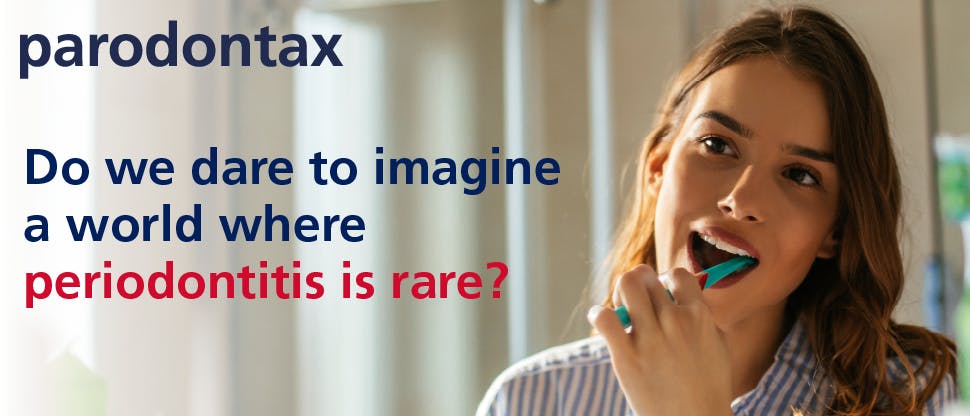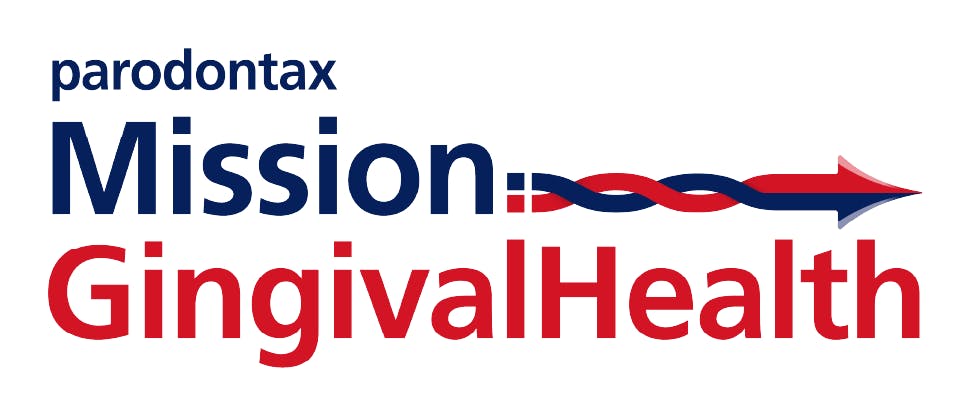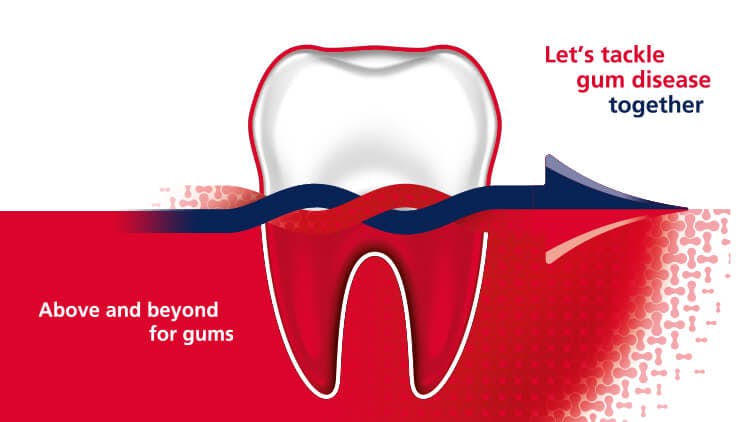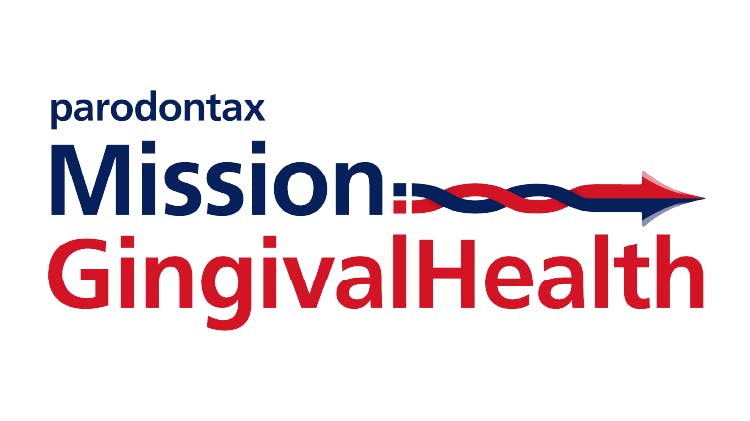Do we dare to imagine a world where gum disease is rare?

Could a greater focus on the prevention and management of plaque-induced gum disease hold the key?
The recent report by The Economist Intelligence Unit highlighted the societal and economic impact of periodontitis and its analysis confirmed that making efforts to eliminate gingivitis, including thorough daily home care, would have a positive return on investment in all European countries studied.1 So, is now the time to have a greater focus on prevention and management of gingivitis? And what would it take to make this possible?
Read on to learn more
Periodontitis
Periodontitis is the 6th most prevalent health condition globally,2 affecting 796 million people.3 Over the last 25 years, despite efforts by health authorities, the dental profession and patients, prevalence has remained largely unchanged.4 There are more years lost to disability through oral diseases (principally caries and periodontitis) than any other human disease and the economic cost is huge.1 In addition periodontitis prevalence is clustered amongst socioeconomically deprived groups across Europe.1
Whilst advances have been made in the treatment of periodontitis, like any other non-communicable disease, should there be a greater focus on management and prevention of gingivitis rather than treatment of periodontitis?
In preparation for EuroPerio10, GSK Consumer Healthcare (now Haleon) hosted a round table with periodontal specialists where consensus was reached that more needs to be done to focus on prevention and management of gingivitis. The group discussed the issue and Professor Iain Chapple summarised:
Professor Iain Chapple summarises
“…it’s time to shift the paradigm… from treating the [periodontal] disease once it has developed to trying to prevent it before it develops. And that means managing gingivitis.”
So why is a change required and why is now the right time?
So what would need to be done to shift the approach to gum disease?
Whilst not all gingivitis progresses to periodontitis, almost all periodontitis starts with gingivitis and for this reason it holds the key to reducing incidence.6,7 A shared commitment is needed by patients and dental professionals to act on gingivitis early and consistently.
“We need to change our focus to behaviour change, empowering of patients and fighting inflammation.” Professor Iain Chapple
A broader, more holistic focus is key to disease prevention and advice for patients, and as part of counselling on behaviour change there is an opportunity to include actions which may influence periodontal diseases such as smoking, obesity and diabetes control.
How can we do it?
A key factor in preventing the progression of gingivitis to periodontitis is patients’ daily oral care behaviour. The dental healthcare professionals from the round table acknowledged that raising awareness of gingivitis and periodontitis for the general public is a key first step to driving behaviour change. Here is what they had to say:
Expert voices: supporting patients
“We need to really shift the emphasis more to supporting the patient and empowering the patient to self-care at home.” Professor Iain Chapple
“…treating gingivitis doesn’t require rocket science but it requires some professionality that all clinicians have” Professor Filippo Graziani
“We need to make sure that we communicate the fact that there is a disease, and the disease can be effectively and successfully treated. And this treatment might have tremendous and important consequences also for the oral health.” Professor Filippo Graziani
“So we need to build patient self-efficacy and once they understand the disease process by understanding why they have it and understanding the risks, we then need to move to a phase where we explain what they can do about it.” Professor Ian Needleman
So maybe by focusing more on prevention of gingivitis and thereby empowering patients to take control of their plaque removal, we could potentially dare to consider a world where periodontitis is rare.

If this is the beginning, where do we go next?
This article is the first in a series entitled ‘Mission: Gingival Health’ which has been developed to bring topical, thought-provoking content to dental professionals. Drawing on the outputs from EuroPerio10 conference, this first article aims to act as a ‘rallying call’ to all dental healthcare professionals to consider the importance of maintaining gingival health, to have greater focus on prevention and management of gingivitis.
In the next few articles we will consider in detail the role of patient behaviour change and examine the science which supports the role of specific formulations in enhancing plaque removal, in order to help support the efforts of dental healthcare professionals in delivering effective care in patients’ homes. Through the right motivations, science, and conversations we could prevent the progression of gingivitis.
Additional resources

parodontax overview
Discover more about our global commitment to the prevention of gum disease.

Supporting you to help patients on a journey to improved gum health
Find out more about how we can partner with you to support a change in patient behaviour to harness the power of daily oral hygiene between dental appointments.

Mission: Gingival Health
This space has been created and designed for you where you will find the latest news in gingival science, insights and commentary from thought leaders, conferences and events.


